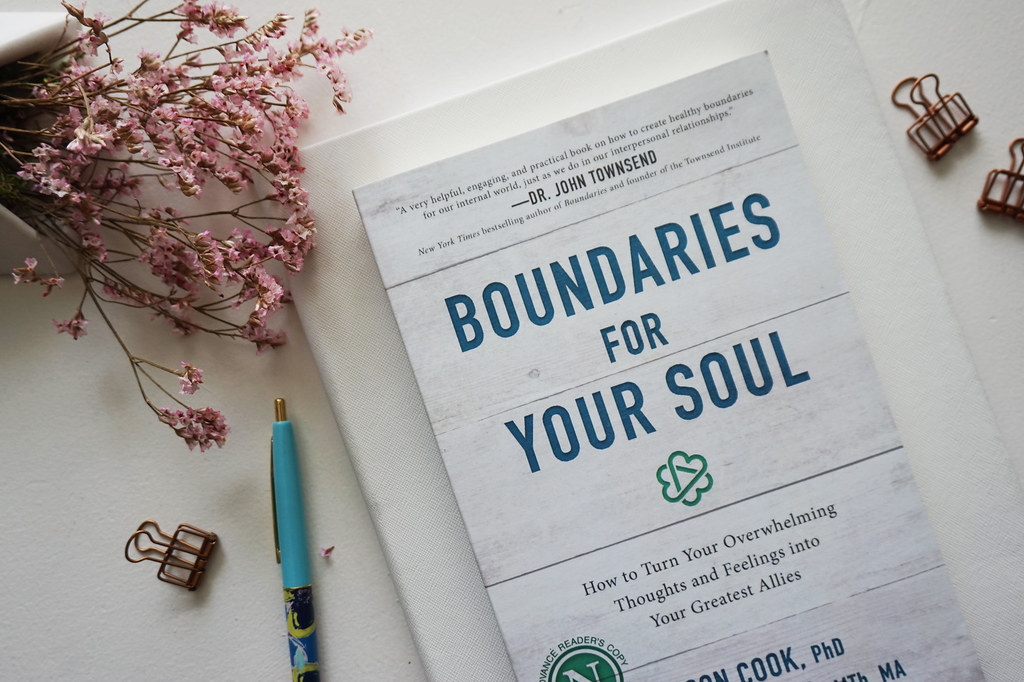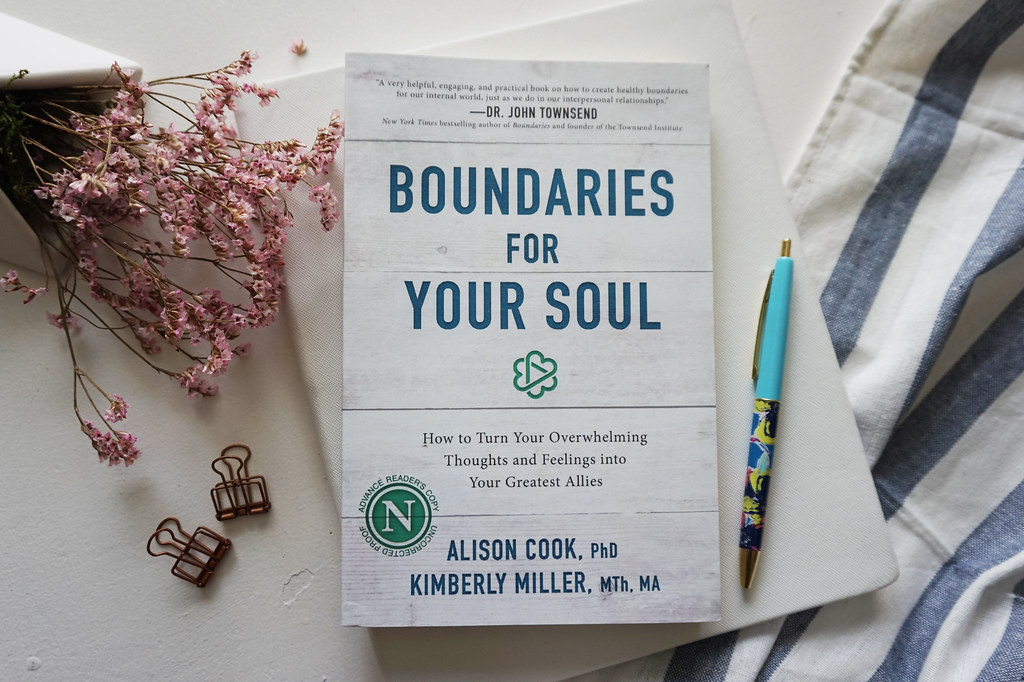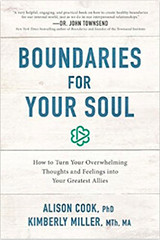You know how hard it can be to reign in your most difficult emotions. And yet God made you to experience strong and powerful feelings. In this post, Dr. Alison Cook shares how her journey to becoming a psychologist was disrupted when she had to face her own overwhelming emotions and learn to befriend them. In her new book, Boundaries for Your Soul, Alison writes with wisdom and compassion about how you can befriend the sometimes challenging parts of your soul and guide them in partnership with God’s Spirit. It’s a grace to welcome Dr. Alison to the farm’s front porch today. . .
I grew up in a close-knit rural town with two loving parents and a fun sister.
I liked school and the outdoors. And I was what you might call a closet dreamer. I had lofty aspirations, a vivid imagination, and strong internal protectors that worked overtime to keep those dreams from proving me a fool.
One dream in particular got the best of me: it centered on the high-stakes world of middle school basketball. Though I was short and not notably athletic, I wanted a spot on that basketball team more than anything on the face of the earth.
To help me prepare for tryouts, my parents asked a family friend and the star of our high school team to coach me several days a week at our makeshift driveway court. I knew my hard work had paid off when this local basketball legend said to me: “You’re good, Alison. You should be on that team.”
I was thrilled. The evening of tryouts, my heart was racing. I laced up my new high-tops and ran out onto the court, fearful but ready. The coach paired me with one of the best point guards, and I stood my ground.
The crowd gasped as I dribbled past her and scored—winning the one-on-one challenge. My dream is coming true, I thought. Finally, I’ll be under the bright lights with all the other girls.
And I was—for that one night. Because the next afternoon, when we raced into the locker room to see who had made the team, my name wasn’t on the list. While my friends hugged and high-fived, I stared down at what had suddenly become a symbol of humiliation—my new high-tops. Trying to hide my shame, I smiled, nodded to my friends, then fled for the safety of home.
In that moment, a part of me developed a powerful new mantra: Dreaming only ends in heartache. Why bother?
And I stopped chasing dreams, for at least a decade.
Instead, I learned to smile and nod from the bleachers and hide myself in books. This smile-and-nod part worked well as a protector—keeping the pain of unrealized dreams away by telling me, and everyone around me, that I was “just fine.”
My dream to live boldly didn’t overwhelm me back then.
It hid far away, in a distant chamber of my soul, where it was staging a coup—unbeknownst to me.







The rebellion occurred years later, one morning after I’d turned in my dissertation proposal. I had been smiling and nodding my way through a demanding year, working long days to put myself through graduate school.
My best friend had married, and I hadn’t been on anything close to a date since I had accidentally danced with a groomsman at her wedding the prior summer. (My dating life had stalled when I started believing the dreaming only ends in heartache mantra.)
That day I found myself with nothing to distract me. None of my students were in crisis, and my writing deadline had been met.
I sat in the silence of my apartment, aware of the bright sunlight filling the room, and all I could feel was emptiness inside.
In that moment, fed up with the loneliness that comes from being emotionally cut off and buried in books, my exiled dreams overwhelmed me in the form of a panic attack.
The onslaught of emotion was a shock to my smile-and-nod protector: You are fine. You work hard. Everything is under control.
But this dreamer part, buried for years, refused to be silenced: I AM NOT FINE!
We all try to avoid painful, uncomfortable feelings like shame, fear, and heartache.
But life’s too short to keep important parts of ourselves locked away. If a part of your soul is tugging at you, focus on it and befriend it. Cultivate curiosity and learn what it needs.
I decided to become curious about this unwanted dreamer.
And I noticed thoughts like: I’m tired of hiding away in fear. I’d like a break from books. I’d love to do something creative. I want to learn how to act!
I was surprised by this last one—acting was another dream I’d had as a child, but after the basketball fiasco, I hadn’t given it the time of day. But now I decided to pay attention and signed up for a class.
At first my new acting class was a challenge—mostly because I wasn’t very good at it. One night my acting teacher said honestly, “I don’t think I’ve met someone with so much energy and knowledge with so little awareness of herself.”
I couldn’t even smile and nod, as a familiar sense of humiliation reared up: Who do you think you are? You’re making a fool of yourself.
But this time was different.
Something inside, that I now know to be my Holy Spirit-led self, stayed present to the painful feelings with compassion: I see you there in front of me, shaming critic, and I know you’re trying to keep me from making a fool of myself. I get that this bold dream feels uncomfortable to you. Let’s hang in there and see what happens.
It took me a solid year before I got the hang of acting. It was worth it, though, to get to know the inner dreamer I had exiled.
This God-given part of my soul wanted me to live courageously—whether that meant I made the team, aced the character, or went down trying.
With God’s help, I invited that exiled dreamer into a place of honor in my soul, where it infused my work, ministry, and relationships with renewed energy and passion.
*******
You don’t have to be ambushed by a broken heart or buried dreams.
You may feel burned-out and fed up with loneliness like I was. Or you might struggle with envy or feel weary of doing good.
Notice the cues. Listen to your pain.
Our usual tendency is to avoid pain. But when you avoid your pain, you avoid opportunities for renewal and growth too.
The key to keeping challenging thoughts and feelings in check is not to deny them, but to extend compassion and guide them from your Holy Spirit-led self.As Jesus said, befriend your enemies. Love them. “Let them bring out the best in you, not the worst. When someone gives you a hard time, respond with the energies of prayer, for then you are working out of your true selves, your God-created selves” (Matt. 5:43–45 msg).
What if Jesus meant to extend compassion not only to your external enemies but also to your perceived enemies within?
The idea of befriending painful or difficult emotions may counter everything you’ve been taught.
But criticizing and rejecting parts of yourself doesn’t make things better.
What does work is befriending the aspects of yourself you dislike, so you can win them over. It’s about extending yourself hospitality.
As Henri Nouwen wrote, “Hospitality…means primarily the creation of a free space where the stranger can enter and become a friend instead of an enemy.”
As you extend hospitality to challenging parts of your soul, you create space for internal transformation.
Alison Cook, MA, PhD, practices in the greater Boston area, where she specializes in the integration of spiritual formation and psychology. Alison, her husband Joe, and their two teens are active in the ministry of the Salvation Army.The story she shares today is from her recently released book, Boundaries for Your Soul: How to Turn Your Overwhelming Thoughts and Feelings into Your Greatest Allies, in which Alison shows you how to calm the chaos within. This groundbreaking approach will help you know what to do when you feel overwhelmed; transform your guilt, anxiety, sadness, and fear into strengths; welcome God into the troubling parts of your soul; and move from doubt and conflict to confidence and peace.
Boundaries for Your Soul includes relatable anecdotes, helpful exercises, an engaging quiz, and opportunities for personal reflection. Gathering the wisdom from the authors’ twenty-five years of combined advanced education, biblical studies, and clinical practice, this book will set you on a journey to become the loving, authentic, joyful person you were created to be. I’m telling you, this is truly a phenomenal book – one to slowly read.
[ Our humble thanks to Thomas Nelson for their partnership in today’s devotion ]










